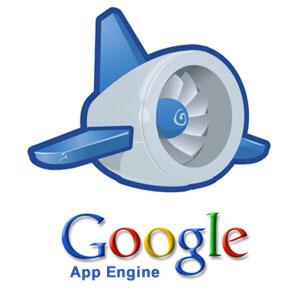
Eclipse IDE Support
As Google supports Eclipse IDE plugin for working with google app engine, it is very helpful to get started quickly in no time. All that is required is download Google App Engine plugin within your Eclipse and start immediately by creating a Google web application. You would find detailed instructions on this page. Also, I would recommend you to go through this article on our website to get started with setup and run the application with Google App Engine.
One Click Deploy
This is the coolest thing I found about working with Google App Engine. Once you have run and tested your web application within Eclipse IDE, all that is needed is do a right click and select Google -> Deploy to App Engine. If all configurations are done right including JDK configuration, it would go smoothly and you would immediately see your application live.
Google Services/APIs
https://developers.google.com/appengine/docs/java/apis
The fact that Google provides several interesting APIs for developers to use in their application makes it so very easy to use some cool features. For instance, I was able to integrate user authentication over HTTPs in no time (flat 10 minutes). It is very difficult to have google like authentication within 10 minutes.
Cloud-based Datastores
https://developers.google.com/appengine/docs/java/storage
One could have access to following three different kind of datastores when working with google app engine. The best thing is the very cloud nature of the datastores.
- App Engine Datastore (A schemaless object datastore with automatic caching)
- Google Cloud SQL (A relational SQL database)
- Google Cloud Storage (A storage service for objects and files)
Code Samples
There are several code samples in different programming languages such as Java, Python, PHP, Go. Following are pages to get started with:
Java Tutorial
https://developers.google.com/appengine/docs/java/gettingstarted/introduction
It’s Free, Fast & Secured
Imagine yourself buying a hosting server and going into the hassles of managing/maintaining it on regular basis. With google app engine, it is free until certain time. Additionally, it is so very easy to deploy your application from within Eclipse IDE without being bothered about FTP etc. One cool thing I found is security features such as User authentication and HTTPs which could be availed by doing a simple configuration in web.xml file.
It’s On the Cloud
Last but not least, with Google app engine, you would be having your application deployed on cloud. That would bring tremendous advantages of cloud to your application including the ability to scale your infrastructure at any time based upon the performance and scalability requirement.
[adsenseyu1]
- The Watermelon Effect: When Green Metrics Lie - January 25, 2026
- Coefficient of Variation in Regression Modelling: Example - November 9, 2025
- Chunking Strategies for RAG with Examples - November 2, 2025

I found it very helpful. However the differences are not too understandable for me